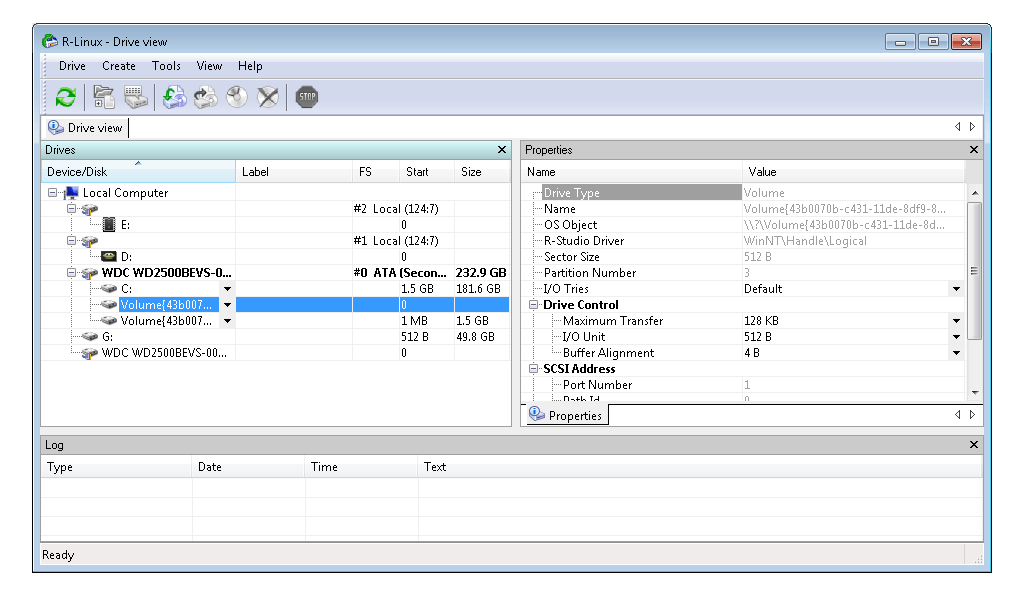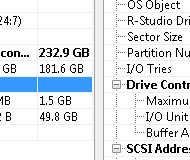R-Linux is a free file recovery utility for the Ext2/Ext3/Ext4 FS file system used in the Linux OS and several Unixes. R-Linux uses the same InteligentScan technology as R-Studio, and flexible parameter settings to provide the fastest and most reliable file recovery for the Linux platform. However, unlike R-Studio, R-Linux cannot recover data over network or reconstruct RAIDs, or provide object copy.
There are two variants of R-Linux: one is for Linux, the other is for Windows. They are the same in their features, and differ only in their host OS.
R-Linux recover files:
- Removed by virus attack, power failure or system crash;
- After the partition with the files was re-formatted, damaged, or deleted;
- When the partition structure on a disk was changed or damaged. In this case, R-Linux can scan the disk trying to find previously existing partitions and restore files from found partitions.
- From disks with bad sectors. In this case, R-Linux can first copy the entire disk or its part into an image file and then process the image file. This is especially useful when new bad sectors are constantly appearing on the disk, and remaining information must be immediately saved.
R-Linux Features:
- Standard "Windows Explorer" - style interface.
- Host OS:
- Linux variant: Linux, kernel 2.6 and above
- Windows variant: Win2000, XP, 2003, Vista, Windows 7, Windows 8/8.1, Windows Server 2008/2012
- Supported file systems: Ext2/Ext3/Ext4 FS (Linux) only.
- Recognition and parsing Dynamic (Windows 2000/XP/Vista/Win7), Basic, GPT and BSD (UNIX) partitions layout schema and Apple partition map. Dynamic partitions over GPT are supported as well as dynamic partitions over MBR.
- Creates image files for an entire hard drive, logical disk, or its part. Such image files can be processed like regular disks. Images can be either simple exact object copies (Plain images) compatible with the old versions of R-Linux, or compressed images that can be compressed, split into several parts, and password-protected. Such images are fully compatible with the images created by R-Drive Image, but incompatible with the old versions of R-Linux.
- Recognizes localized names.
- Recovered files can be saved on any (including network) disks accessible by the host operating system.
- S.M.A.R.T. attribute monitoring. R-Linux can display S.M.A.R.T. (Self-Monitoring, Analysis and Reporting Technology) attributes for hard drives to show their hardware health and predict their possible failures. Any unnecessary work with such hard drives should be avoided if S.M.A.R.T. warnings appear.
- Search for deleted file versions. R-Linux can search for deleted file versions using their sizes, names and extensions, and recognized file types as the search parameters.






















